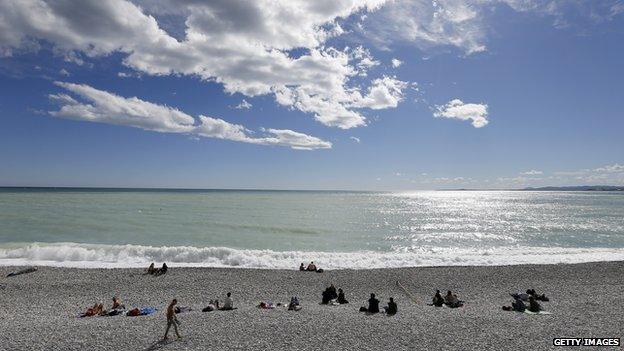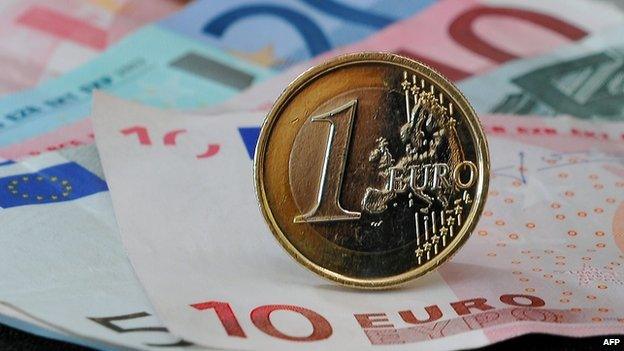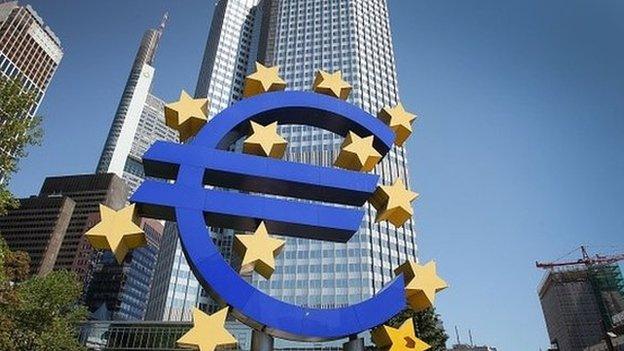Pound hits seven-year high against euro
- Published

UK tourists visiting Europe will be significantly better off this year than in 2014
The pound has reached a more-than seven year high against the euro, a day after the European Central Bank (ECB) began its government bond buying programme.
Sterling rose 1% to hit €1.40 for the first time since December 2007.
It means UK holidaymakers to the eurozone will have just over 15% more spending power than a year ago.
City analysts said continued fears over a Greek exit from the eurozone had also helped push the pound higher against the single currency.
Last year, the pound was trading at €1.205, meaning holidaymakers could expect €1.18 for every pound they exchanged.
UK holidaymakers to Europe would have received €707 for every £600 they exchanged a year ago, but they would get €822 today.
The rise in sterling came after the head of the eurozone finance ministers' group called on Greece to "stop wasting time" and engage in serious talks on reform.
Bond buying
At a meeting in Brussels on Monday, Dutch finance minister Jeroen Dijsselbloem said there had been little progress made since discussions two weeks ago.
European creditors want to approve a detailed list of reforms before they release any loans to Greece.
Jeremy Cook, chief economist and head of currency strategy at foreign exchange traders World First, said alongside concerns over Greece, the ECB's bond buying programme and negative bank deposit interest rates were "hammering" the single currency.
The ECB began its €60bn (£42.8bn) monthly bond buying programme on Monday.
On Tuesday, sterling rose as high as €1.4091, up more than 1%.
Inflation target
Announcing the start of the programme last week ECB president Mario Draghi said the bank would continue to buy bonds into the second half of 2016.
However, Mr Draghi kept the door open to continuing the programme past this deadline, should inflation in the eurozone have failed to return to near normal levels.
The ECB has a remit to keep inflation at or slightly below 2%. But persistent low inflation throughout 2014 stoked fears that the currency bloc could fall into deflation as consumers held off spending and businesses postponed investment as price fell.
Mr Draghi said he expected domestic demand to improve over the course of the year, as the effects of the bond-buying programme began to be felt, and that demand for European exports, would increase "as prices become more competitive," thanks to a weaker euro.
He added he expected the lower oil price to be helpful over the next few months.
Last week the ECB raised its forecast for eurozone economic growth to 1.5% in 2015 from its previous December forecast of 1%.
It also upped its forecast for economic growth to 1.9% in 2016, and to 2.1% for 2017.
Also last week, official figures confirmed that the eurozone economy grew by 0.9% in 2014.
Elsewhere, Germany's BGA trade association, external raised its forecast for exports, expecting the weaker euro to offset uncertainty surrounding crises in Greece and Ukraine.
It said it expected exports to grow 4.5% this year, up from a previous forecast of 4%. Imports are forecast to rise 4% which would increase Germany's trade surplus to a record €231bn, BGA said.
- Published5 March 2015

- Published22 January 2015
